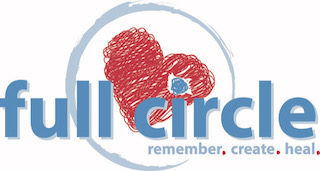By Allyson England Drake, M.Ed, CT
It is very common for people to experience guilt, the feeling you get when you think you did something wrong, after the death of someone significant to them. As described by Dr. David Feldman, guilt is a feeling, not a fact. It is imperative to accept and honor feelings, but it’s also important to understand that our feelings don’t always accurately mirror reality. In other words, feeling guilt does not mean that we are guilty of doing anything wrong.
What makes us feel guilty after a death?
- Feeling that we should have done or said more.
- Thinking we should have made different decisions in regard to our loved one.
- Believing their illness or death could have been avoided if we had done something different.
- There is nobody to blame, so we blame ourselves.
- Because we fail to do things we wish we had done or should have done.
- Feeling we said something hurtful or failed to say something we should have said before they died.
- We ruminate on every “woulda, shoulda, coulda” we can imagine.
According to What’s Your Grief, these ideas below may help you cope with guilt:
• Acknowledge that guilt is a normal grief emotion
• Consider what your guilt is all about
• Talk it over with someone – friend, family, or professional
• Examine your thoughts and attempt to understand your feelings of guilt
• If your guilt feelings are irrational, acknowledge that they are
• Find positive thoughts or memories to balance your guilty thoughts
• Forgive yourself
• Understand what you have learned
• Consider what your loved one would tell you about your guilt
References:
Dr. David Feldman, TAPS Institute for Hope and Healing, “Coping with Guilt when You’re Grieving” presentation (2021)

